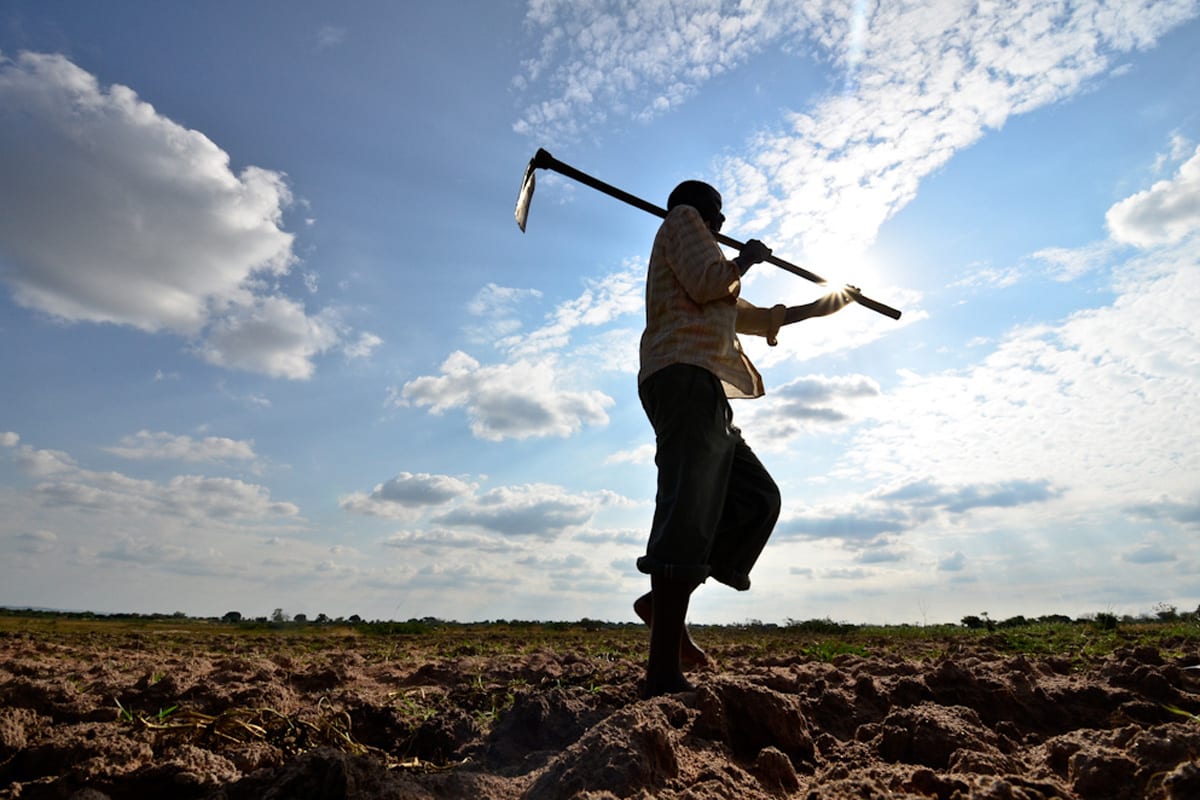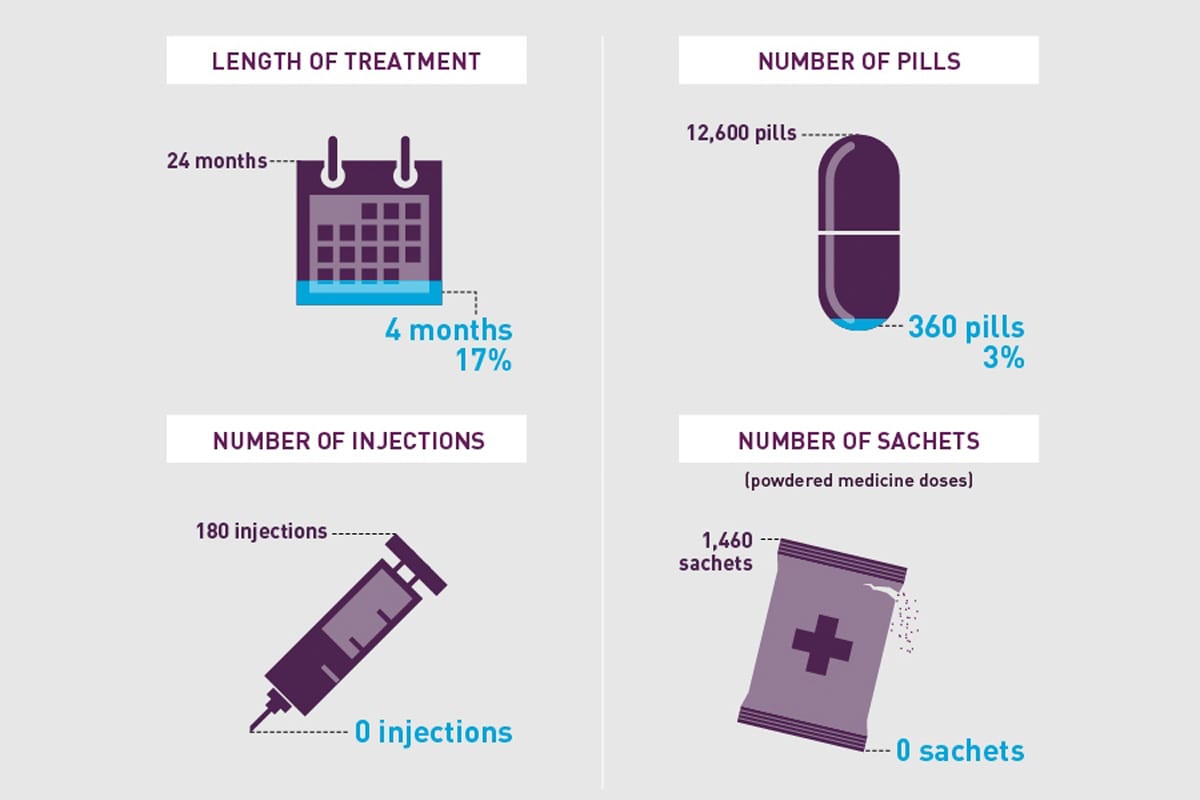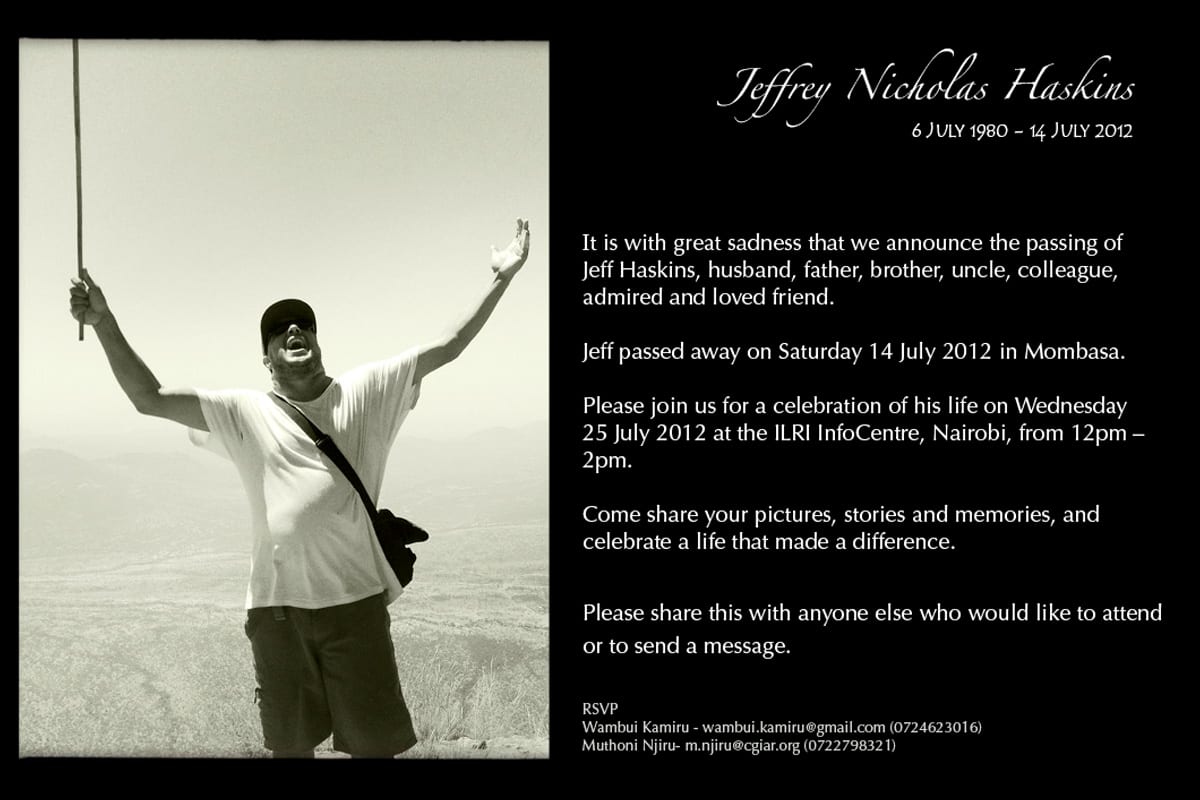Protecting Privacy in Whole Genome Sequencing

Whole genome sequencing—which provides a map of a person’s entire genetic makeup—has huge potential for improving medical care. Yet, concerns about personal privacy and misuse of data from these tests could deter people from getting their genes sequenced and sharing their genetic information with researchers and clinicians. That’s why the Presidential Commission for the Study of Bioethical Issues has undertaken a review of the privacy and data access issues that arise from whole genome sequencing.
What Can Scientists Learn from Tonight’s Presidential Debate

2012's Presidential debate was packed with perfect examples of messages about real people, and use of storytelling to get a point across. It was also a great display of a tool we call “bridging”—what experts in this NPR piece call “the pivot.”
Progress in East Africa as Farmers Begin Adapting to Changing Weather

In a year when abnormal weather has wreaked havoc on farmers around the globe—from record drought in the U.S. to the failed monsoon in India—new research recently published by the CGIAR Research Program on Climate Change, Agriculture and Food Security (CCAFS) shows that smallholder farmers across East Africa have started to adapt to the changing climate.
Reading Between the Ad-Libs

Former President Bill Clinton—however you feel about his policies or politics—is one of those speakers who can command an audience. Throughout his speech at the Democratic National Convention, journalists on Twitter noted that he was “off-prompter”—that is, he was ad-libbing or riffing off of his prepared remarks. Some of his most effective and memorable lines were not in his prepared remarks.
Mars, It’s the Journey, Not the Destination

The now famous video “Curiosity’s 7 Minutes of Terror” tells the incredible story of the rover’s difficult landing and explains the complex process the engineers went through and the obstacles they faced in safely landing a $2.5 billion rover on another planet. Using animation and testimony from the engineers, the video turns the complex scientific process into a compelling and accessible story.
Challenging Rabies’ Killer Reputation

Rabies has been thought of as one of the world’s deadliest infections, and exposure to it—usually through the bite of a rabid animal—an automatic death sentence unless immediately treated with a series of painful injections. But according to a new study from the Centers for Disease Control and Prevention, researchers have uncovered a pocket of people in a remote area of the Peruvian Amazon who show a natural resistance to the disease.
Trial Signals Major Milestone in Hunt for New TB Drugs

A study by the Lancet reveals a neglected side of the fight against HIV - the battle to help people who have tuberculosis and the incredible lack of good drugs needed to cure them. Today, TB remains the largest killer of people with AIDS.
Jeff Haskins Tribute, ILRI Campus, 25 July 2012

Our friends at the International Livestock Research Institute (ILRI) in Nairobi, Kenya, will be hosting a celebration of Jeff’s life on Wednesday, July 25 from 12:00 noon to 2:00 pm.
Remembering Jeff Haskins

Burness Communications remembers, Jeff Haskins, our personal friend and extraordinary colleague of nearly nine years.
Nice Save: The Unexpected Benefits of Federally-Funded Health Research

One of the overlooked stories in biomedical research is the story of unintended consequences. Or, more accurately, the story of unintended benefits. That’s the story that we wanted to tell through the new advertising campaign designed by Burness Communications for Research!America.
